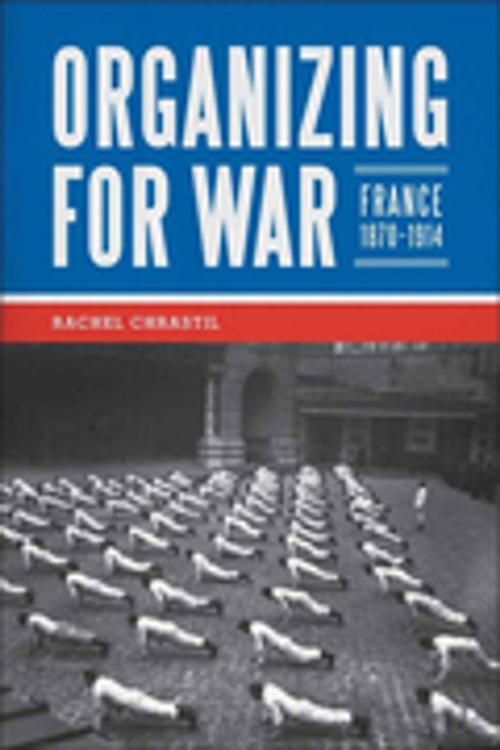| Author: | Rachel A. Chrastil | ISBN: | 9780807146736 |
| Publisher: | LSU Press | Publication: | October 1, 2010 |
| Imprint: | LSU Press | Language: | English |
| Author: | Rachel A. Chrastil |
| ISBN: | 9780807146736 |
| Publisher: | LSU Press |
| Publication: | October 1, 2010 |
| Imprint: | LSU Press |
| Language: | English |
By the end of the Franco-Prussian War (1870--71), Germany occupied one-third of French territory, thousands of Alsatians and Lorrainers had flooded into France, and 140,000 French soldiers had died. France's crushing defeat in the most significant European armed conflict between the Napoleonic wars and World War I cast long shadows over military garrisons, meeting halls, and kitchen tables throughout the nation. Until now, no study has adequately addressed the complex, lasting effects of the war on the lives of ordinary French men and women. In this stimulating new book, Rachel Chrastil provides a lively history of French provincial citizens after the Franco-Prussian War as they came to terms with defeat and began to prepare themselves for a seemingly inevitable future conflict.
Chrastil provides the first examination of the problems facing provincial France following the war and the negotiations between the state and citizen organizations over the best ways to resolve these issues. She also reinterprets postwar commemorative practices as an aspect of civil society, rather than as an issue of collective memory. By the 1880s, Chrastil shows, the Franco-Prussian War had receded far enough into the past for French citizens to reassess their roles during the war and reorient themselves toward the future. Believing that they had failed in their duties during the Franco-Prussian War, many French men and women argued that citizens could and should take responsibility for the nation's war effort, even before hostilities began.
To this end, they joined the Red Cross, gymnastics clubs, and commemorative organizations like the Souvenir Français, especially in areas of the country that had faced occupation and that anticipated future invasion. Using extensive archival and published sources, Chrastil deftly traces the evolution of these private or semiprivate associations and the ways in which those associations affected the relationship of citizens with the French state. Through a novel interpretation of these civilian groups, Chrastil asserts that the associations encouraged French citizens to accept and even to prolong World War I.
By the end of the Franco-Prussian War (1870--71), Germany occupied one-third of French territory, thousands of Alsatians and Lorrainers had flooded into France, and 140,000 French soldiers had died. France's crushing defeat in the most significant European armed conflict between the Napoleonic wars and World War I cast long shadows over military garrisons, meeting halls, and kitchen tables throughout the nation. Until now, no study has adequately addressed the complex, lasting effects of the war on the lives of ordinary French men and women. In this stimulating new book, Rachel Chrastil provides a lively history of French provincial citizens after the Franco-Prussian War as they came to terms with defeat and began to prepare themselves for a seemingly inevitable future conflict.
Chrastil provides the first examination of the problems facing provincial France following the war and the negotiations between the state and citizen organizations over the best ways to resolve these issues. She also reinterprets postwar commemorative practices as an aspect of civil society, rather than as an issue of collective memory. By the 1880s, Chrastil shows, the Franco-Prussian War had receded far enough into the past for French citizens to reassess their roles during the war and reorient themselves toward the future. Believing that they had failed in their duties during the Franco-Prussian War, many French men and women argued that citizens could and should take responsibility for the nation's war effort, even before hostilities began.
To this end, they joined the Red Cross, gymnastics clubs, and commemorative organizations like the Souvenir Français, especially in areas of the country that had faced occupation and that anticipated future invasion. Using extensive archival and published sources, Chrastil deftly traces the evolution of these private or semiprivate associations and the ways in which those associations affected the relationship of citizens with the French state. Through a novel interpretation of these civilian groups, Chrastil asserts that the associations encouraged French citizens to accept and even to prolong World War I.















